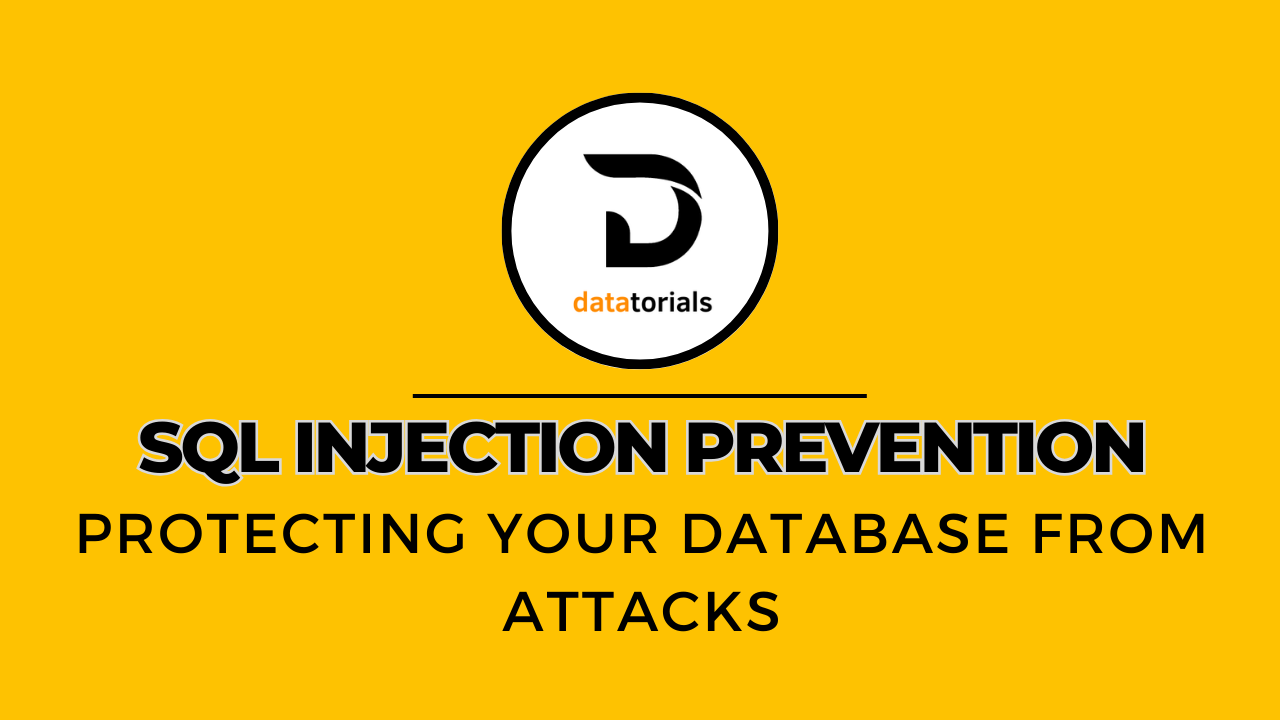SQL Injection Prevention: Protecting Your Database from Attacks

Introduction:
In today’s digitally interconnected world, data security remains a top concern for businesses and individuals alike. Among the various vulnerabilities threatening databases and web applications, SQL injection stands out as a critical concern. This blog post aims to provide a comprehensive understanding of SQL injection, shed light on its workings, and equip you with essential strategies to safeguard your database from these malicious attacks.
Understanding SQL Injection:
What is SQL Injection? SQL injection is a cyber attack technique that exploits vulnerabilities in applications by injecting malicious SQL code into input fields. Attackers manipulate these fields to execute unauthorized SQL commands, potentially compromising data integrity, confidentiality, and availability.
Potential Impact: SQL injection attacks can lead to unauthorized data access, unauthorized modifications, data breaches, and even unauthorized control of an entire system. This underscores the urgency of preventing such attacks.
How SQL Injection Works:
Exploiting Input Fields: Attackers target input fields in applications, such as login forms, search bars, and comments sections, where user input interacts with the database. By inserting malicious SQL code, they manipulate the application to perform unintended actions.
Example Attack Scenario: Consider a login form that constructs an SQL query like this:
SELECT * FROM users WHERE username = '$username' AND password = '$password';
An attacker might enter ' OR '1'='1 as the username and any password, causing the query to become:
SELECT * FROM users WHERE username = '' OR '1'='1' AND password = 'anyPassword';
Preventing SQL Injection:
12. Stored Procedures:
Using Stored Procedures: Stored procedures are precompiled SQL statements stored in the database itself. By utilizing stored procedures, you reduce the risk of SQL injection, as attackers can’t inject malicious code directly into your application’s queries.
Advantages:
- Encapsulate SQL logic: The database handles the query, preventing attackers from manipulating the query structure.
- Reusability: You can call the same stored procedure from multiple parts of your application.
- Performance: Stored procedures can be optimized by the database management system for better performance.
Implementing Stored Procedures: Instead of constructing dynamic SQL queries in your application code, define and call stored procedures that encapsulate your SQL logic. This prevents attackers from altering the query structure through input fields.
Conclusion:
Stored procedures provide a robust layer of defense against SQL injection attacks. By leveraging the power of stored procedures, you secure your application’s database interactions and mitigate the risk of malicious code injection. Embracing secure coding practices, such as using stored procedures, contributes to building resilient applications that prioritize data security and user trust.
